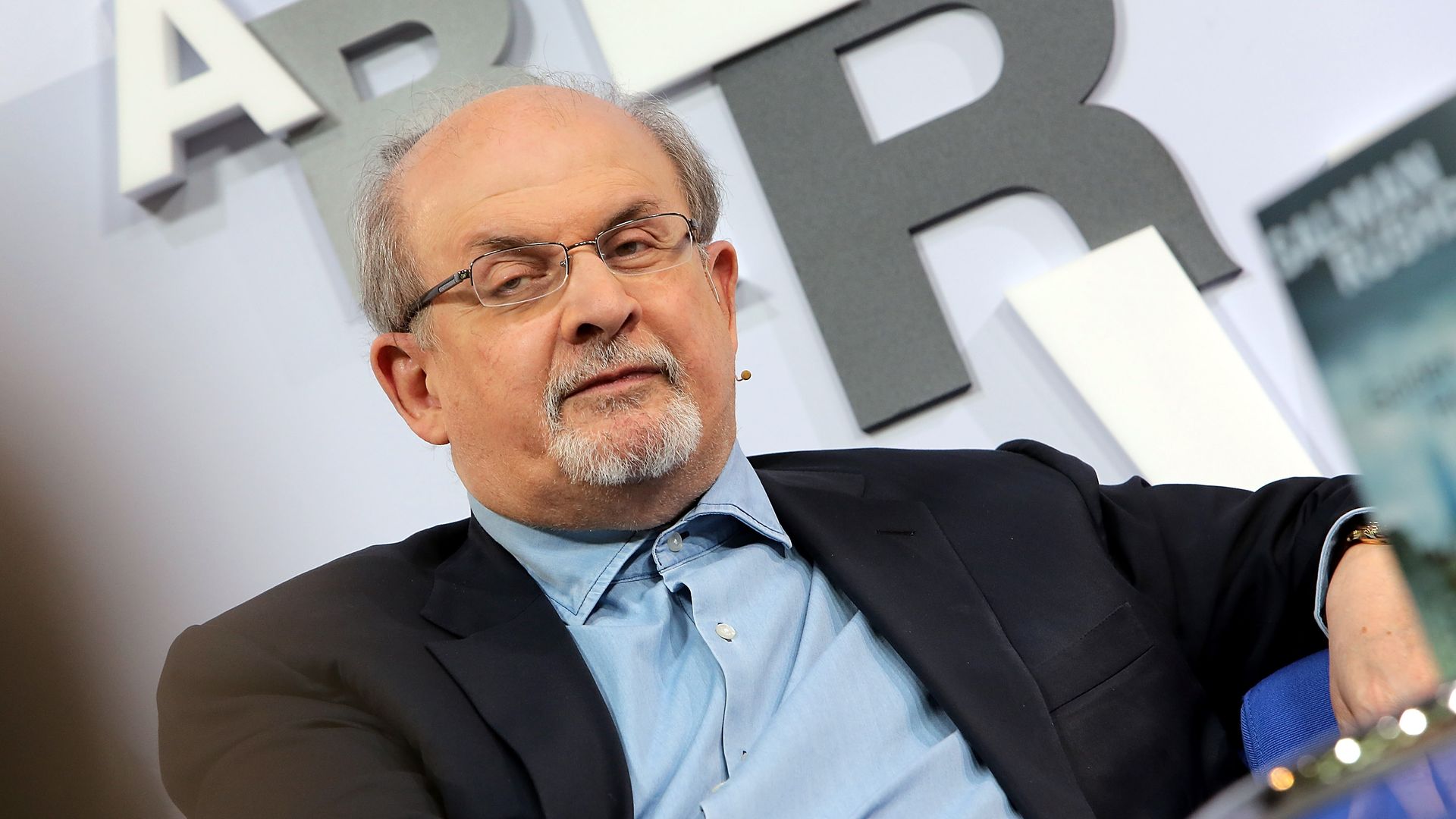Salman Rushdie's agent: Author lost use of eye and hand from attack
Add Axios as your preferred source to
see more of our stories on Google.

Salman Rushdie at a book festival in Frankfurt, Germany, in October 2017. Photo: Hannelore Foerster/Getty Images
Salman Rushdie's agent, Andrew Wylie, told the Spanish-language daily newspaper El País in an interview published Saturday that the author lost the use of an eye and hand from a knife attack in New York in August.
Why it matters: It's the latest update on Rushdie's condition since the attack, during which Wylie said the author suffered three serious wounds in his neck and 15 more in his chest and torso.
Rushdie was on stage at an event at the Chautauqua Institution in western New York on Aug. 12 when a man, later identified as 24-year-old Hadi Matar from Fairview, New Jersey, jumped on stage and stabbed the author and another man.
- Rushdie spent nine years in hiding under a British government protection program after he faced death threats and a bounty for his murder from the Iranian government in the late 1980s over his book, "The Satanic Verses," which was inspired by the life of the Islamic prophet Muhammad.
- In 1989, the Ayatollah Ruhollah Khomeini of Iran called for Rushdie's death and put a bounty of more than $3 million on his head over the book.
- The Iranian government denied being involved in the stabbing but blamed the author and his fans for the attack.
What they're saying: "[His wounds] were profound, but he’s [also] lost the sight of one eye," Wylie told El País.
- "I think the attack was probably something that Salman and I have discussed in the past, which was that the principal danger that he faced so many years after the fatwa was imposed is from a random person coming out of nowhere and attacking [him]."
- "So, you can’t protect against that because it’s totally unexpected and illogical. It was like John Lennon’s murder."
The big picture: Matar pleaded not guilty to second-degree attempted murder and assault charges in August and was being held without bail.
- The district attorney prosecuting Matar asked a judge in September for more time to process more than 30,000 files and pieces of evidence involved in the case while attempting to establish the suspect's motive.
Go deeper: Rushdie case prosecutors ask judge for more time to process evidence
